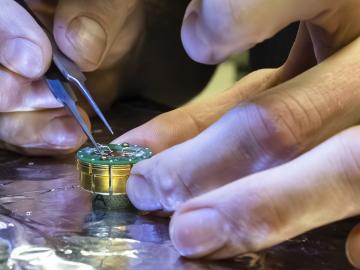
Quantum computers process information using quantum bits, or qubits, based on fragile, short-lived quantum mechanical states.

Quantum computers process information using quantum bits, or qubits, based on fragile, short-lived quantum mechanical states.
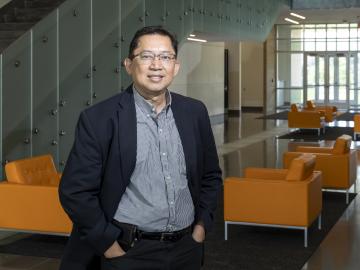
Rigoberto Advincula, a renowned scientist at ORNL and professor of Chemical and Biomolecular Engineering at the University of Tennessee, has won the Netzsch North American Thermal Analysis Society Fellows Award for 2023.
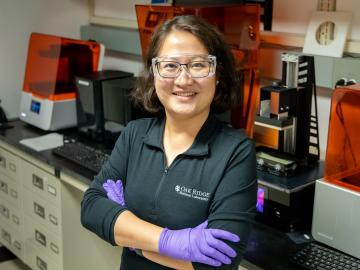
Growing up in China, Yue Yuan stood beneath the world’s largest hydroelectric dam, built to harness the world’s third-longest river.

Zheng Gai, a senior staff scientist at ORNL’s Center for Nanophase Materials Sciences, has been selected as editor-in-chief of the Spin Crossover and Spintronics section of Magnetochemistry.
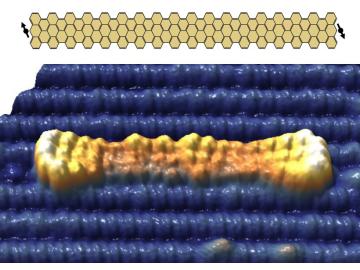
An international multi-institution team of scientists has synthesized graphene nanoribbons – ultrathin strips of carbon atoms – on a titanium dioxide surface using an atomically precise method that removes a barrier for custom-designed carbon
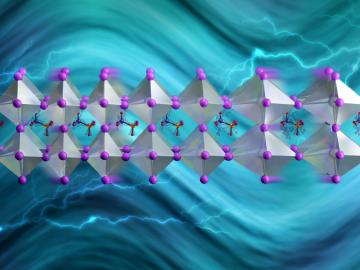
Led by ORNL and the University of Tennessee, Knoxville, a study of a solar-energy material with a bright future revealed a way to slow phonons, the waves that transport heat.

